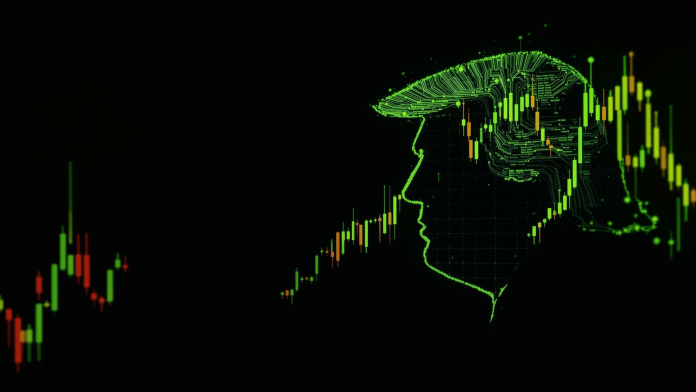This article should not be considered investment advice; it is purely the opinion of our editorial team.
Following Donald Trump’s 2024 presidential election win, U.S. stock markets displayed a sharp, immediate response. However, the movements primarily reflected short-term reactions rather than long-term investor confidence or market trends.
The Dow Jones Industrial Average jumped by over 1,500 points the day after the election, while the S&P 500 gained approximately 2.5%, and the Nasdaq Composite also saw significant increases. These gains are believed to be driven by investor optimism around potential deregulation, tax cuts, and other pro-business policies that Trump’s administration might implement.
The VIX Index, which measures market volatility, declined after the election, indicating relief as uncertainties surrounding the outcome subsided. This drop reflected a temporary calm in the markets, though analysts warned that this sentiment could shift depending on upcoming Federal Reserve decisions and broader economic developments.
Sector-specific gains were notable. Banking stocks such as Goldman Sachs and JPMorgan Chase led the charge, driven by expectations of a more business-friendly environment. Industrial and energy stocks also rallied, aligning with Trump’s campaign rhetoric around supporting these industries. However, concerns about inflation, interest rates, and other economic pressures loom over these early gains, leaving the long-term outlook uncertain.
While the market’s immediate reaction was largely positive, it’s important to remember that such sharp moves often reflect emotional responses rather than enduring trends. Retail investors, in particular, should be wary of interpreting these fluctuations as indicators of long-term market sentiment. These short-term reactions can mislead by overstating confidence and masking deeper uncertainties, ultimately steering less-experienced investors toward decisions that may not align with a comprehensive investment strategy. Recognizing the difference between emotional market movements and sustained trends is critical to navigating volatile periods wisely.
We currently do not see any signals of a long-term market trajectory and are waiting for more significant movements to assess.


